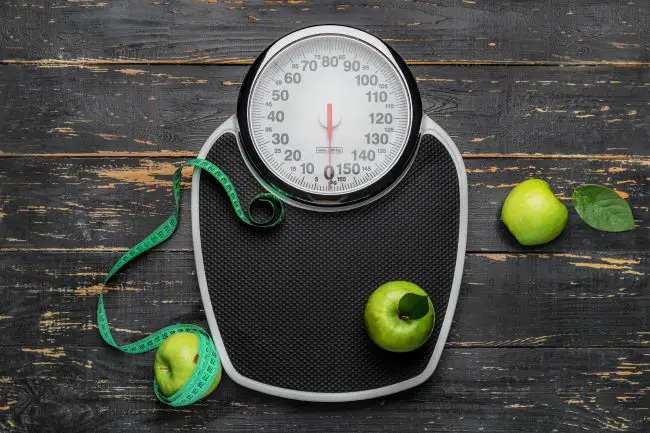In recent years, intermittent fasting (IF) has gained significant attention as a popular dietary strategy for weight loss and overall health improvement. But the question on many people’s minds is: Is intermittent fasting healthy?

This article will explore the science behind intermittent fasting, its potential health benefits and risks, and whether it’s a suitable approach for you.
What is Intermittent Fasting?
Intermittent fasting is an eating pattern that alternates between periods of eating and fasting. Unlike traditional diets that focus on what to eat, intermittent fasting emphasizes when to eat.

There are various methods of intermittent fasting, including:
- 16/8 Method: Also known as the Leangains protocol, this method involves fasting for 16 hours a day and eating during an 8-hour window. For example, you might eat between noon and 8 PM.
- 5:2 Diet: In this approach, you consume a regular diet for five days a week and restrict calorie intake to about 500-600 calories on two non-consecutive days.
- Eat-Stop-Eat: This method involves fasting for a full 24 hours once or twice a week. For instance, if you finish dinner at 7 PM, you would not eat again until 7 PM the next day.
- Alternate-Day Fasting: This involves alternating between fasting days and eating days. On fasting days, individuals may consume very few calories or none at all.
- Warrior Diet: This method consists of undereating during the day and consuming one large meal in the evening, typically within a 4-hour eating window.
Is Interval Eating Healthy? The Science Behind It

1. Weight Loss and Fat Loss
One of the most notable benefits of intermittent fasting is its effectiveness for weight loss. Research has shown that IF can lead to a reduction in body weight and fat mass. By limiting the eating window, many people naturally consume fewer calories, which can result in weight loss.
Furthermore, fasting triggers hormonal changes that promote fat burning. Insulin levels drop, facilitating the breakdown of fat for energy, while levels of norepinephrine increase, boosting metabolic rate.
2. Improved Insulin Sensitivity
Intermittent fasting may enhance insulin sensitivity, reducing the risk of type 2 diabetes. Insulin sensitivity is crucial for maintaining healthy blood sugar levels, and improved sensitivity means your body can more effectively use insulin to regulate glucose. Studies suggest that IF can lower fasting insulin levels and improve insulin sensitivity.
3. Heart Health
Several studies indicate that intermittent fasting may benefit heart health by reducing risk factors such as high blood pressure, cholesterol levels, triglycerides, and inflammatory markers. Maintaining healthy heart function is essential for overall well-being, and IF could play a supportive role in this aspect.
4. Cellular Repair and Autophagy
Fasting triggers a cellular repair process known as autophagy, where cells remove damaged components and regenerate. This process can help prevent various diseases, including cancer, neurodegenerative disorders, and infections. Autophagy is thought to be enhanced during fasting, making intermittent fasting a potential ally in maintaining cellular health.
5. Brain Health
Intermittent fasting may have positive effects on brain health as well. Animal studies suggest that IF can increase the production of brain-derived neurotrophic factor (BDNF), a protein associated with cognitive function, learning, and memory. Furthermore, fasting may reduce oxidative stress and inflammation, contributing to better brain health.
6. Longevity
Although research is still in its early stages, some studies indicate that intermittent fasting could potentially extend lifespan. Animal studies have shown that IF can lead to increased longevity by reducing the risk of diseases associated with aging.
Potential Risks of this diet
While intermittent fasting can offer several health benefits, it’s not without its risks. Here are some potential downsides to consider:
- Nutritional Deficiencies: Restricting eating to specific windows can lead to inadequate nutrient intake if not properly planned. It’s essential to focus on nutrient-dense foods during eating periods to meet your nutritional needs.
- Overeating: Some individuals may overcompensate during eating windows, consuming more calories than they would normally eat, which can hinder weight loss efforts.
- Difficulties with Social Situations: Fasting can complicate social eating events or family meals, making it challenging to adhere to an IF plan in social settings.
- Hormonal Imbalances: For some women, Interval Eating may lead to hormonal fluctuations that can affect menstrual cycles or fertility. It’s vital to monitor your body’s response and consult a healthcare professional if you experience any adverse effects.
- Potential for Disordered Eating: For those prone to disordered eating patterns, intermittent fasting may exacerbate unhealthy behaviors and attitudes toward food. It’s essential to approach fasting mindfully and prioritize a healthy relationship with food.
Who Should Avoid Intermittent Fasting?
While many people can safely practice intermittent fasting, certain individuals should consult a healthcare professional before starting:
- Pregnant or breastfeeding women: Nutritional needs are heightened during this period, and fasting may not provide adequate nutrients.
- Individuals with a history of eating disorders: Fasting can trigger unhealthy behaviors in those with a history of disordered eating.
- People with certain medical conditions: Individuals with diabetes, heart conditions, or other chronic illnesses should consult a healthcare provider to ensure intermittent fasting is safe for them.
Tips for Getting Started with Intermittent Fasting
If you decide to try Interval Eating, here are some tips to make the transition smoother:
- Start Gradually: Begin with shorter fasting windows (e.g., 12 hours) and gradually increase as you become more comfortable.
- Stay Hydrated: Drink plenty of water during fasting periods to stay hydrated. Herbal teas and black coffee are also generally acceptable.
- Focus on Whole Foods: During eating periods, prioritize nutrient-dense foods such as fruits, vegetables, lean proteins, whole grains, and healthy fats.
- Listen to Your Body: Pay attention to your hunger cues and how your body responds to fasting. If you feel fatigued or unwell, consider adjusting your fasting schedule.
- Be Consistent: Consistency is key for any dietary approach. Stick to your chosen fasting method to experience its benefits over time.
Conclusion
So, is intermittent fasting healthy? The answer largely depends on the individual. For many, intermittent fasting can offer a range of health benefits, including weight loss, improved insulin sensitivity, and enhanced brain health. However, it may not be suitable for everyone, and potential risks must be taken into consideration.
If you’re interested in trying intermittent fasting, approach it mindfully and focus on maintaining a balanced diet. Always consult a healthcare professional before making significant dietary changes, especially if you have existing health conditions.
With careful planning and a mindful approach, intermittent fasting can be a healthy strategy to incorporate into your lifestyle.
